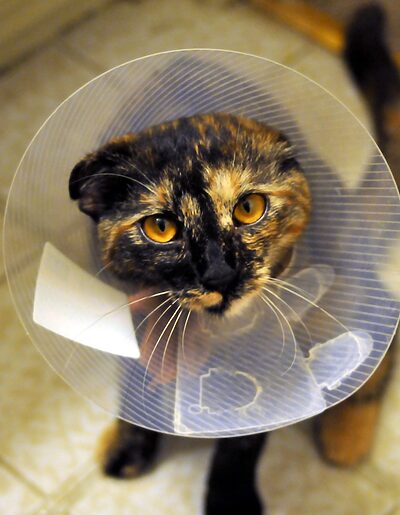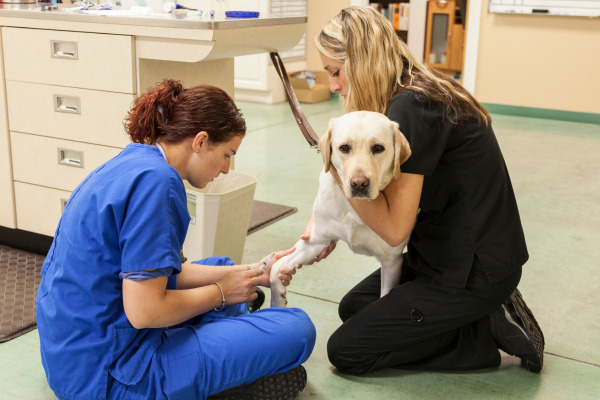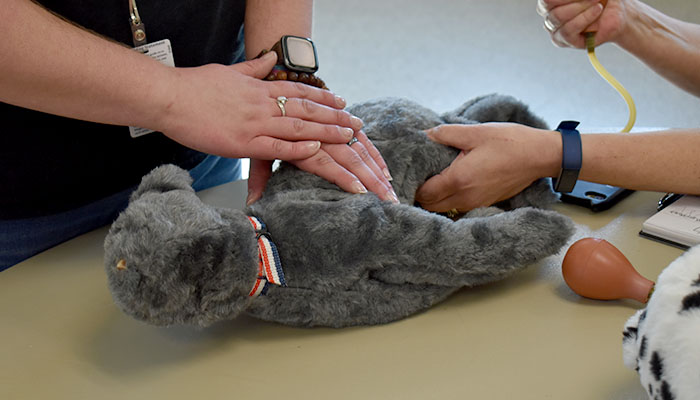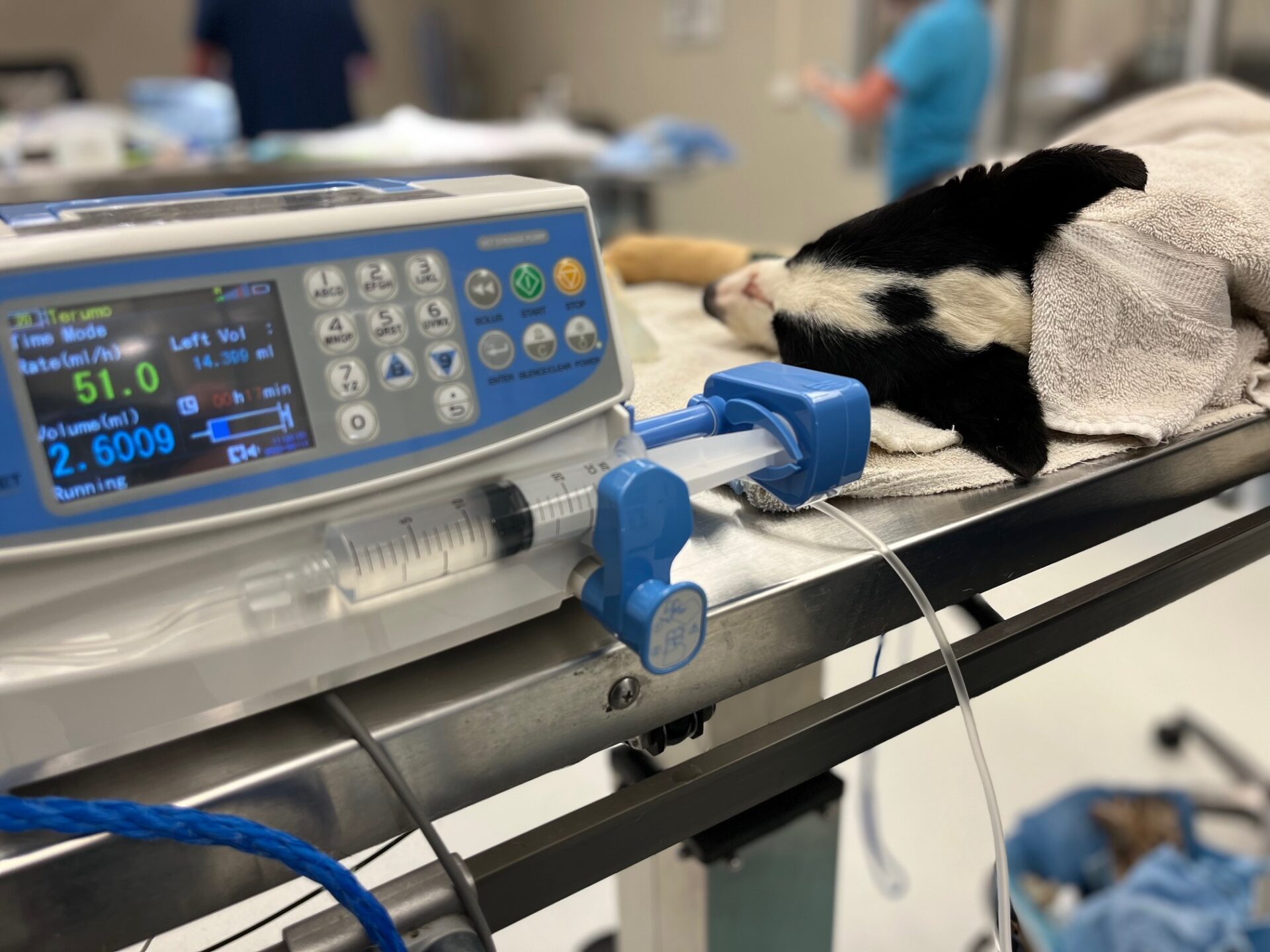An emergency in the middle of the night is one of every pet owner’s worst nightmares. The recent announcement of the closure of the only 24-hour emergency clinic in Rochester, Veterinary Specialists & Emergency Services, has escalated this fear. But you are not alone, and we know we can get through this regional and national concern together. Here is some information on the state of veterinary services, and tools to help your pets in an emergency.

What is causing the crisis in veterinary services nationwide?
In an article from the American Animal Hospital Association (AAHA), studies indicate that not only are the number of pets in our country growing exponentially, the number of veterinarians coming into the field is not enough to meet that demand.* There simply aren’t enough veterinary professionals to care for all of our pets.
Several factors are at play.
- High-debt Veterinarians obtain from schooling & access to schooling
– While the average debt is high, it has gone down slightly. According to the American Veterinary, “In 2022, the average student debt for all graduates was $147,258, down more than 6% from 2020.”**
– Access to schooling also prevents many from coming into the veterinary field. An article from the AVMA cites the cost of schooling and applications, finding mentors or advisors, and not enough young adults learning about the veterinary profession as part of the reason why people aren’t entering the field. ***
- Lower-paying jobs compared to human healthcare
– The U.S. Bureau of Labor Statistics shows that veterinary mean income is just 58% of family medicine physicians in the human health field. ****
- Compassion fatigue among veterinary staff
– Compassion fatigue is the physical and emotional exhaustion seen in those who care for others as part of their employment. This commonly occurs in human and veterinary medicine, and can cause extreme amounts of stress. Compassion fatigue can affect both work and home life, and can ultimately lead to burnout that causes staff to leave the field altogether.
- Veterinarians and veterinary support staff are leaving the field for various reasons, including retirement or to find new careers (because of some of the factors above).
These issues and more are causing a sharp decline in the availability of care for both general practices and emergency clinics across the country. Our area has certainly felt the strain in recent times.

What is left for local emergency veterinary care?
So what should you do in an emergency?
Emergency Veterinary Care: The nearest 24-hour emergency centers will now be an hour or more away, in Buffalo, Syracuse, or Ithaca. While this drive may be long, it may be your only option if your pet is in immediate distress.
Telehealth: If you aren’t sure if your pet is experiencing an emergency, telehealth services is a good place to start. Services like Vet Triage or Vetster can help you determine if your pet should go to an emergency clinic or if you can wait until you can be seen by your regular veterinarian. If your pet has ingested something, like a medication, food, or household cleaner, call a poison control hotline for instructions, like the ASPCA Poison Control Hotline. Poison control will guide you on the next steps for your pet or let you know if you need to go to an emergency clinic immediately.
Urgent Care: Urgent care hospitals work much like their human health service counterparts, working as the “in-between” for general practices and emergency hospitals. Many veterinary urgent cares run by appointments only, so be sure to call ahead.
For a list of telemedicine options, local urgent care, and emergency hospitals, visit our website for more resources.
Can my regular veterinarian see my pet in an emergency?
It depends. While all veterinarians and licensed veterinary technicians are trained in handling emergency cases, not all hospitals are equipped to handle certain types of emergencies. Advanced diagnostic equipment such as MRIs or ultrasounds may be needed, and general practice veterinary hospitals may not have such equipment. Emergency hospitals also have intensive care areas and can keep patients overnight if needed.
Many emergency hospitals also have veterinary specialists on staff. Your regular veterinarian may also refer you to a specialist such as a surgeon, ophthalmologist, or internal medicine specialist, among others. These specialists serve as experts in their field of study and are certified by the American Veterinary Board for their specialty. With the closure of Rochester’s emergency and specialty services, you may also need to travel for specialty care.
Your regular veterinarian is essential in the care of your pet, and they will advise you on steps you and your family should take.
What if I can’t afford emergency care?
Veterinary medicine can be expensive.
While human hospitals require treatment in emergencies by law, animal health does not. Since animals are viewed as property by law in most states and animal hospitals are built on for-profit business models, veterinarians are not required to treat pets if owners are without payment. This can be challenging for families needing emergency care for their pets, but you have options.
Pet Insurance: There are pet insurance agencies that can help you plan for the care of your pet, whether in an emergency or on a preventative basis. Be sure to look through all options and get your pet insurance early, as preexisting conditions may sometimes prevent your pet from obtaining coverage.
Care Credit and other Financing Options: When paying in full is not possible there are options that can help you finance your pet’s visit. One service is Care Credit, a credit card usable at veterinary and human hospitals to help families with their healthcare costs. There are also foundations in the Rochester area for families to apply for financial assistance, such as Rochester Hope for Pets.

How can you prevent emergencies?
One of the best ways to help your pet right now is to prevent emergencies before they happen. Plan ahead for your pet to keep them safe with these tips:
- Establish a relationship with a general practice veterinarian to ensure your pet is up to date on vaccinations, preventative medications, and more.
Don’t wait. If your pet starts to become ill, call your regular veterinarian to make an appointment. In some cases, it may be a few days before your regular veterinarian can schedule an appointment.
- Keep toxic foods and plants. away from pets. These include grapes, onions, chocolate, poinsettias, and mums.
- Keep medications off counters and away from pets, whether they are animal or human medications. Some dog medications, especially, use flavoring to make it more palatable for pets, which means they may think it’s a treat!
- Have an emergency plan in place. For fires or other emergencies requiring you to evacuate your house, having a plan is the best way to keep everyone safe. Have leashes and carriers (or whatever means will help you keep your pets contained) by the exit door to your home. This way you can help your pet while on your way outside in an emergency. https://www.lollypop.org/resources/pet-emergency-planning/
- Keep emergency supplies ready, like medications, records, first aid kits (for humans and pets), and whatever else your pet needs ready and by the door in case of emergency.
Pet First Aid
Another way you can be prepared is by knowing what to do in an emergency. Lollypop Farm offers the Pet First Aid and CPR course through our Humane Education Department, which teaches emergency skills to help on the trip to a veterinary emergency hospital.
Learn more here..

The Future
While the answer to the veterinary crisis may not be immediate, we at Lollypop Farm will continue to help pet owners and community members with community programs, services, and resources. We are connecting with veterinary professionals in our area, and advocating for our community’s needs.
If you are in an emergency and need help weighing your options, please feel free to reach out. Our Contact Us form can help you reach the right team member to help you with your situation. Visit lollypop.org/contact-us/ for more information.
* Source: Tony McReynolds, “And you thought we don’t have enough vets now…” https://www.aaha.org/publications/newstat/articles/2022-03/and-you-think-we-dont-have-enough-vets-now-.-.-/.
** American Veterinary Medical Board, “Chart of the Month: Good news on student debt”https://www.avma.org/blog/chart-month-good-news-student-debt.
*** Mattson, Kaitlyn “Potential veterinary students face layered admission challenges: Cost, requirement differences complicate the application process” February 03, 2021 JAVMAhttps://www.avma.org/javma-news/2021-02-15/potential-veterinary-students-face-layered-admission-challenges.
****Source: U.S. Bureau of Labor, “Occupational Employment and Wages, May 2022, 29-1131 Veterinarians.”https://www.bls.gov/oes/current/oes291131.htm and and “Occupational Employment and Wages, May 2022, 29-1215 Family Medicine Physicians” https://www.bls.gov/oes/current/oes291215.htm.


